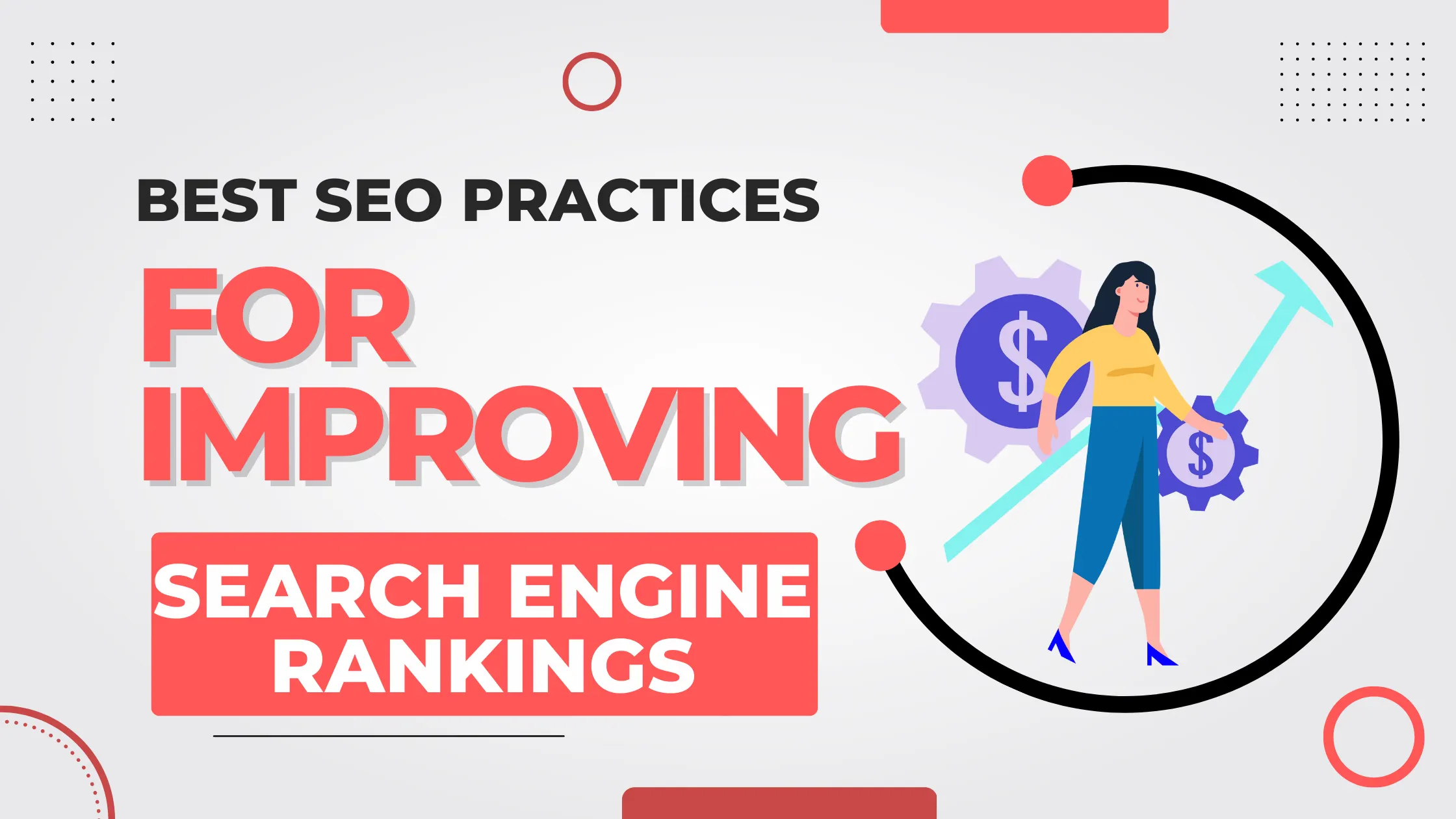5 Best SEO Practices for Improving Search Engine Rankings
As a business owner or website manager, you want to ensure that your website ranks as high as possible in search engines like Google. This is because higher search rankings can lead to more organic traffic, which can translate into increased revenue and success for your business.

In this article, we will discuss the best SEO practices for improving search engine rankings. By following these strategies, you can give your website a better chance of ranking highly in search engine results pages (SERPs).
Here are Best SEO Practices for Improving Search Engine Rankings
Table of Contents:
- Research and use relevant keywords
- Optimize your website's content and meta tags
- Improve your website's user experience
- Build high-quality backlinks
- Monitor and track your search rankings
- Conclusion
1. Research and Use Relevant Keywords
One of the most important SEO practices for improving search engine rankings is to research and use relevant keywords. Keywords are the terms and phrases that people use when searching for information online. By including these keywords in your website's content and meta tags, you can help search engines understand what your website is about and improve its chances of ranking highly for those terms.
To find the best keywords for your website, you can use a keyword research tool like Google's Keyword Planner. This tool allows you to enter a keyword or phrase and see how often it is searched for, as well as related keywords and phrases that you can use in your content.
Once you have a list of keywords, it's important to include them in the right places on your website. This includes:
- Page titles and headers
- Meta descriptions
- Alt tags for images
- Body copy
It's also important to use keywords naturally and avoid keyword stuffing, which is the practice of cramming as many keywords as possible into your content. This can make your content difficult to read and may actually hurt your search rankings.
2. Optimize Your Website's Content and Meta Tags
In addition to including relevant keywords in your website's content, you should also optimize your content and meta tags for SEO. This includes:
- Creating unique and compelling titles and descriptions for each page
- Using header tags (H1, H2, etc.) to structure your content and make it easier to read
- Using internal and external links to improve the user experience and link to authoritative sources
- Ensuring that your website loads quickly and is mobile-friendly
Your website's meta tags, which include the title and description tags, are critical for SEO. These tags appear in the SERPs and give searchers an idea of what your website is about and why they should visit it. By creating compelling and accurate meta tags, you can increase the chances of attracting organic traffic to your website.
3. Improve Your Website's User Experience
In addition to optimizing your website's content and meta tags, it's important to focus on improving the overall user experience. This includes making sure your website is easy to navigate, has a clean and professional design, and provides valuable and informative content.

There are several ways to improve your website's user experience, including:
- Making sure your website is mobile-friendly and responsive
- Using a clean and easy-to-read font
- Using high-quality images and videos
- Ensuring that your website loads quickly
Improving the user experience can not only help attract more organic traffic to your website, but it can also improve your conversion rate and lead to more sales or leads for your business.
4. Build High-Quality Backlinks
In addition to optimizing your website's content and meta tags, and improving the user experience, it's important to focus on building high-quality backlinks. Backlinks are links from other websites that point to your website. They are an important factor in SEO because they demonstrate to search engines that your website is trustworthy and relevant.
To build high-quality backlinks, you should focus on getting links from authoritative and relevant websites. This includes websites in your industry, as well as well-known and respected websites in general.
There are several ways to build backlinks, including:
- Creating valuable and informative content that other websites will want to link to
- Participating in online communities and forums related to your industry and sharing your expertise
- Collaborating with other businesses or websites and guest posting on their blogs
- Submitting your website to online directories and industry-specific lists
It's important to note that the quality of your backlinks is more important than the quantity. It's better to have a few high-quality backlinks than a large number of low-quality ones.
5. Monitor and Track Your Search Rankings
Finally, it's important to monitor and track your search rankings to see how well your SEO efforts are paying off. There are several tools you can use to track your rankings, including Google Search Console and paid tools like Ahrefs and SEMrush.
By tracking your rankings, you can see which of your SEO strategies are working and which ones may need to be adjusted. You can also see how your website stacks up against your competitors and identify areas for improvement.
Conclusion
By following these best SEO practices for improving search engine rankings, you can give your website a better chance of ranking highly in search engine results pages and attracting more organic traffic. While SEO can take time and effort, it is a valuable investment that can pay off in the long run for your business.















